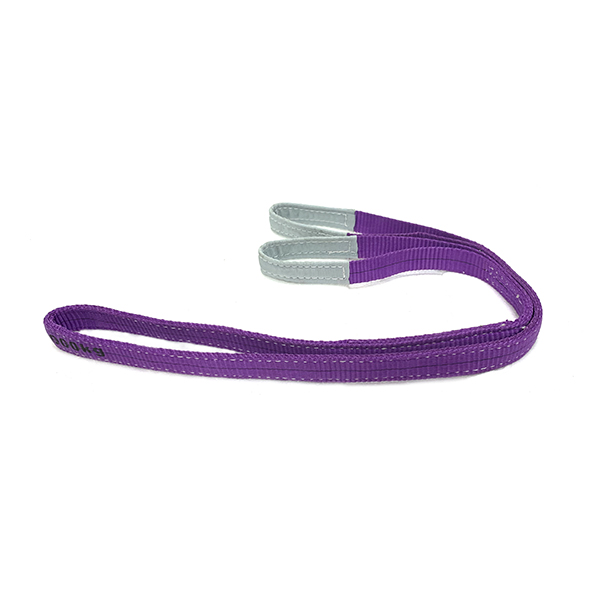What are the advantages of synthetic weaving
One of the most common reasons for a Polyester Flat Webbing Sling rigger to use synthetic slings instead of wire rope slings or chain slings is th fact that they won’t scratch or crush your load. That’s why synthetic slings are extremely popular in the construction industry and with ship haulers.Synthetic slings are also an attractive choice due to their lower cost. If you’re wondering whether nylon slings are cheaper than polyester slings, don’t. The prices are more or less the same, and your focus should be on choosing the right sling for the job.Compared to wire rope and chain, synthetic slings are much lighter, making them easier to transport and handle. Again, nylon is typically a little heavier than polyester, but it’s not much of a difference when you consider the weight of chain and wire rope.

It’s true that nylon is stronger on an individual fiber level, but a polyester sling can be made just as strong as a nylon one by adding more threading. And both types can easily lift several thousand pounds. So while it’s important to use a lifting sling that’s rated for the load your lifting, this won’t affect your choice between nylon and polyester.Now that you know how they’re similar, let’s look at the differences between the physical characteristics of nylon and polyester to determine which material type is best for your job.This is one the most important differences between nylon slings and polyester slings. While nylon slings have more give to them about 7 to 10 percent stretch when at that does not mean they are weaker than polyester typically 2 to 3 percent stretch at WLL.
The main reasons you would want more or less stretch when lifting a load include overheight lifting room and the potential for “snapback”.If you have height limitations, polyester is probably the better choice. If your load could bounce around a lot, the extra stretch of nylon will reduce the danger of the strap snapping back at you or others. This difference in the stretch is why you typically see recovery straps made of nylon and tow straps made of polyester.Both nylon and polyester slings are good for delicate loads, but if you’re wondering which one is best for the most delicate loads, it’s polyester. The chemical coating on nylon webbing gives it a slightly more coarse texture.
Polyester is also a bit more flexible than nylon. By flexible, I’m not talking about stretch but rather the ability to wrap tightly around a load and grip the most surface area.Another key question to ask when choosing between nylon slings and polyester slings is, what are the environmental conditions? There’s a reason why ship haulers and those in marine environments prefer polyester slings, they absorb less water and are just a bit more resistant to UV rays. But, you also need to consider the differences when it comes to chemical resistance.Avoid using nylon slings if you’re operating anywhere near sulfuric, nitric, hydrochloric, or phosphoric acids. Nylon is also unresistant to oxidizing bleach agents such as sodium hypochlorite, hydrogen peroxide, sodium percarbonate, and calcium hypochlorite.On the other hand, polyesters Achilles heel is ethers and alkalis. Among other chemicals, this includes diethyl ether, dimethyl ether, sodium hydroxide, potassium hydroxide, calcium hydroxide, calcium carbonate, and magnesium hydroxide.

 简体中文
简体中文 English
English Deutsch
Deutsch